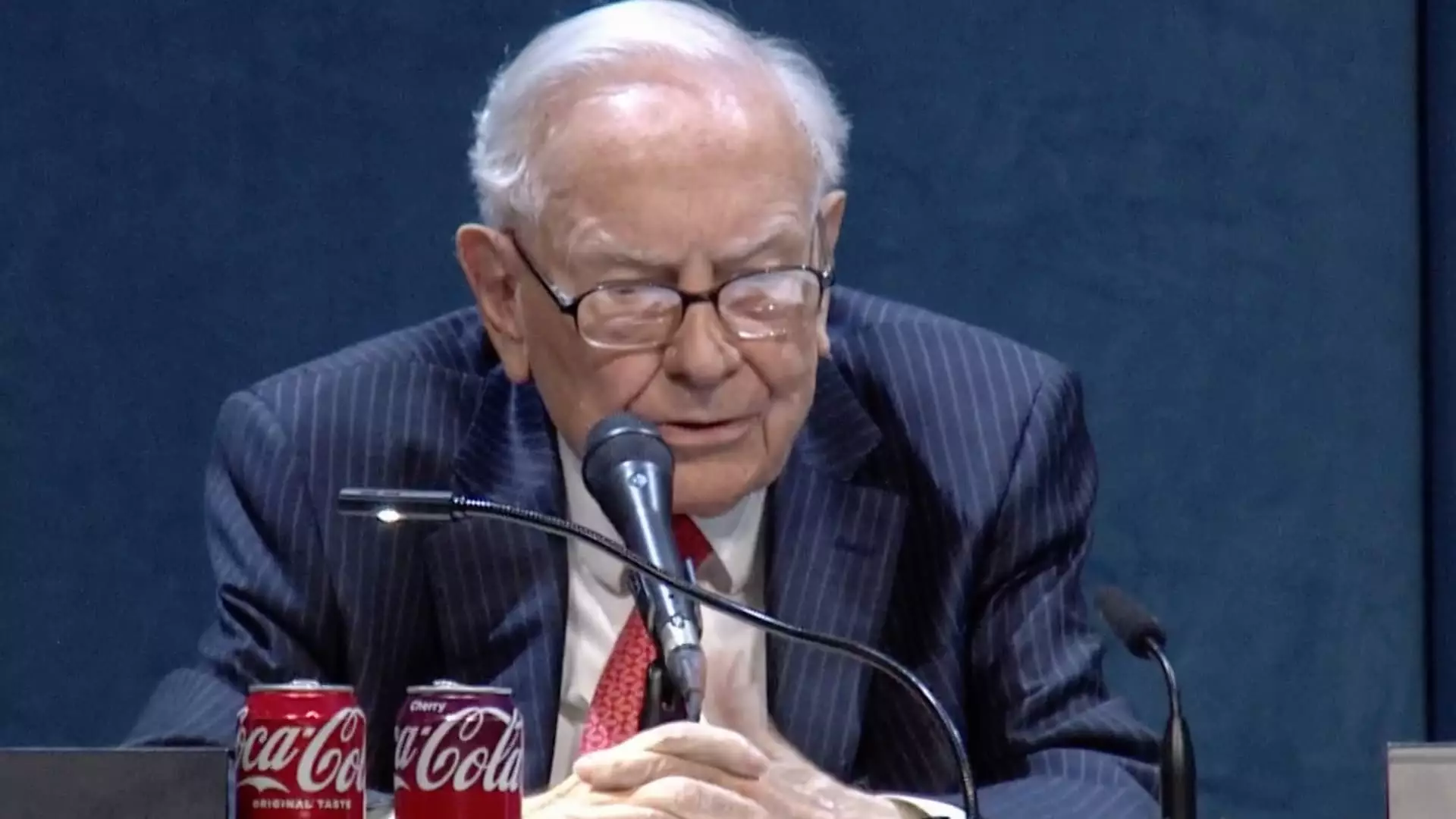Warren Buffett, often revered as the sage of Omaha, has played the role of an almost mythical figure in the investment world. But his recent announcement to step down as CEO of Berkshire Hathaway has sent shockwaves through the stock market. Contrary to Buffett’s own predictions of a robust rise in stock performance post-departure, Berkshire Hathaway’s value has plummeted more than 10% since the news broke on May 3. This 10% dip, which lags behind the S&P 500 by a staggering 15 points, raises concerns about what the future holds for the company and its shareholders.
The phenomenon known as the “Buffett premium”—a financial buffer created by the immense trust and reputation Buffett has cultivated over decades—now appears to be unraveling. Investors once battled for Berkshire shares, comforted by the knowledge that they were backed by one of the most successful capital allocators in history. Yet, as David Kass, a finance professor and longtime shareholder, pointedly observes, the market reaction has been surprising. The potential for further decline looms ahead, as some investors may retreat from their positions if this bearish trend continues.
Aging Wisdom or Misguided Confidence?
Buffett’s decision to pass the torch to Greg Abel, while remaining as the board’s chairman, reflects a personal acknowledgment of aging that many successful leaders often find difficult to confront. Though Buffett’s belief in Abel’s aptitude to sustain Berkshire’s culture is admirable, it raises doubts about the organizational stability post-Buffett. The company’s first-quarter earnings, which saw a disheartening 14% decline, only exacerbate these worries. Operating earnings stumbled to $9.64 billion, leaving investors questioning the resilience of Berkshire’s diverse portfolio.
Kevin Heal of Argus Research suggests that algorithms and instant market reactions contributed to the company’s initial decline. These swift fluctuations in value emphasize a broader issue within the investment community—an unsettling reliance on rapid trading algorithms that can exacerbate volatility before more rational assessments of underlying business conditions can take hold. As one examines the landscape of Berkshire’s current standing, it is evident that investors are grappling with both immediate reactions and deep-seated fears.
Assessing the Future: A Rough Transition Ahead
According to Meyer Shields from Keefe, Bruyette & Woods, there’s still a lingering 5% to 10% Buffett premium that hints at remaining confidence in his ability to guide the company, even from the chairman’s seat. This perception serves as a double-edged sword; while it reflects some faith in Buffett’s enduring influence, it also illuminates the precarious path ahead. The forthcoming transition could see Berkshire’s value declining as the market adjusts to a new leadership dynamic and evaluates Abel’s capabilities in navigating a complex investment environment.
As Berkshire Hathaway stands at a critical juncture, it holds a market cap of over $1 trillion, a figure that cannot be overlooked. Nevertheless, shareholders must now decide if their faith in Berkshire is a steadfast investment strategy or merely a gamble anchored in nostalgia for a leader whose shadow looms large over the company’s legacy. The coming months will undoubtedly reveal whether Buffett’s foresight can defy the crumbling metrics surrounding his departure, or if the Berkshire empire, once a beacon of capitalist success, will falter under the strain of changed stewardship.


Leave a Reply